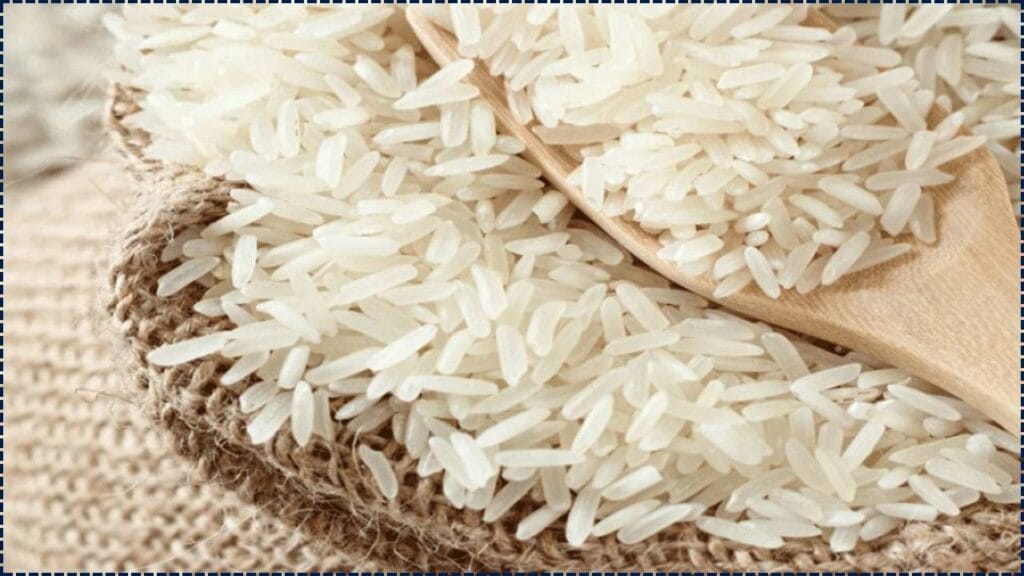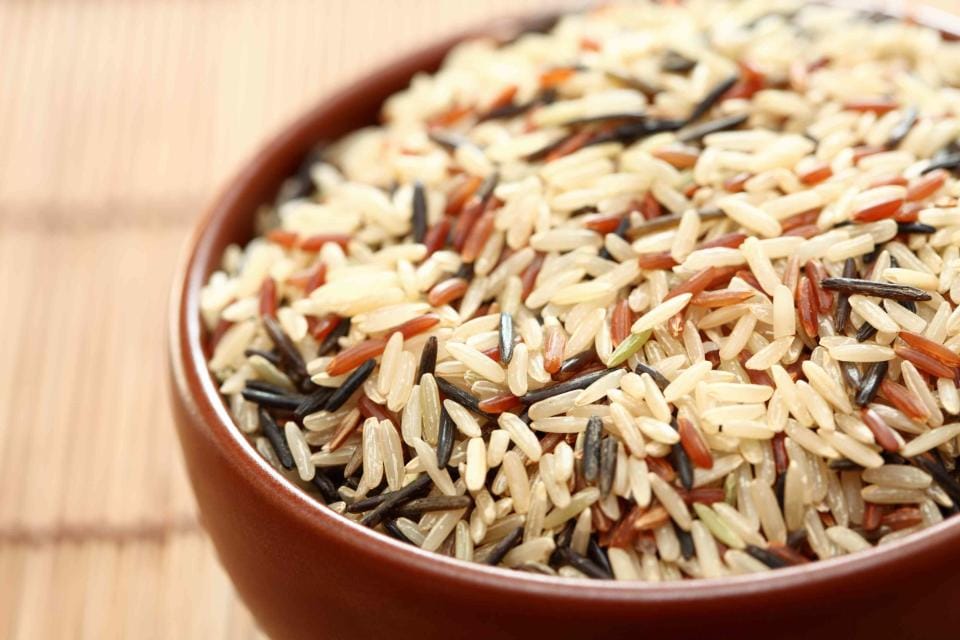In an alarming development, a nationwide recall has been issued for Lundberg Family Farms Sustainable Wild Blend Gourmet Rice due to potential rodent contamination. The U.S. Food and Drug Administration (FDA) has categorized the recall as a Class II health risk, meaning that while serious health issues are unlikely, the contamination could cause temporary or medically reversible health consequences. The recall impacts seven states and has raised concerns over food safety standards.

The recall underscores the importance of food safety in the U.S. and highlights how even small contamination issues can lead to large-scale recalls. If you’ve purchased this product, it’s crucial to determine whether your rice is affected, and to follow the instructions to protect your health.
Nationwide Rice Recall Issued
| Key Point | Details |
|---|---|
| Brand Affected | Lundberg Family Farms |
| Product Involved | Sustainable Wild Blend Gourmet Rice |
| Lot Code | 231004 |
| Best By Date | October 4, 2024 |
| UPC Code | 73416-00430 |
| States Affected | Arizona, California, Florida, Maine, New Hampshire, Oregon, Wisconsin |
| Recall Classification | Class II (FDA) |
| Health Risk | Temporary or medically reversible adverse health consequences due to rodent contamination |
| Action Required | Stop using the product, dispose of it properly, return it for a refund |
| Reported Illnesses | No illnesses reported to date |
| FDA Recall Page | Link to FDA’s official recall page |
The Lundberg Family Farms rice recall serves as a reminder of the importance of food safety and vigilance in our consumption choices. While the likelihood of serious health consequences from this recall is low, it’s still crucial to follow the FDA’s guidelines and take action to protect your health. By checking your rice packaging, disposing of affected products, and staying informed about future recalls, you can help ensure your safety.
For more information, check the FDA recall page and reach out to Lundberg Family Farms for further assistance.

What’s the Issue?
The Lundberg Family Farms recall was triggered after the discovery of rodent contamination in a specific batch of Sustainable Wild Blend Gourmet Rice. While the contamination hasn’t been confirmed as harmful yet, the FDA classified this recall as a Class II risk, which means there is a potential for adverse health effects that are temporary or medically reversible.
The primary concern is that the contamination might have introduced harmful bacteria, toxins, or other pathogens that could lead to foodborne illnesses. Contaminants from rodents can include Salmonella, Leptospirosis, or even Hantavirus, all of which can cause various symptoms, from nausea and vomiting to more severe effects if not addressed.
The recall specifically applies to products with lot code 231004, best by date October 4, 2024, and UPC code 73416-00430. The products were distributed in several states, including California, Florida, and Wisconsin, and consumers are advised to check the packaging for these details.
Why Rice Contamination Matters
Rice, a staple in many households, is particularly vulnerable to contamination due to its long shelf life and storage practices. When contamination occurs, especially with rodent activity, it poses more than just a hygiene issue. It can lead to bacterial contamination, and in some cases, chemical exposure, which can seriously affect public health.
Rodents are known to carry a variety of pathogens that can contaminate food. While contamination in dry foods like rice is less common, it is still a concern. Even though rice might be dry, it can become a breeding ground for bacteria or foreign objects if mishandled or improperly stored. This recall serves as a reminder that food safety is not just about the ingredients, but also about how food is processed, stored, and packaged.
The Science Behind Food Safety Recalls
The FDA follows a strict process when investigating and handling recalls to ensure public health is protected. Here’s a breakdown of how the recall process works:
- Initial Investigation: The FDA acts on reports from consumers, manufacturers, or inspection agencies. In this case, a potential contamination was flagged either through consumer complaints or internal company checks.
- Testing and Analysis: The FDA works with the manufacturer to test the affected products. This could involve microbial testing, chemical analysis, or physical inspection of the products to identify any foreign contaminants.
- Recall Classification: Based on the severity of the contamination risk, the FDA classifies the recall into one of three categories:
- Class I: Serious health risk (e.g., life-threatening contaminants).
- Class II: Temporary or reversible health consequences.
- Class III: No health risk but non-compliant with FDA regulations.
- Public Notification: Once a recall is initiated, the FDA posts alerts on their website, and manufacturers send direct notifications to affected consumers. Retailers are also notified to pull the affected products from store shelves.
What Consumers Should Do Now
If you have purchased Lundberg Family Farms Sustainable Wild Blend Gourmet Rice, here are the key steps you should take:
- Check Your Product Packaging: Examine your rice packaging for the lot code (231004), best by date (October 4, 2024), and UPC code (73416-00430). If the rice matches the affected lot, proceed with the next steps.
- Dispose of the Product: Do not consume the rice. While no illnesses have been reported, it’s better to be safe. Dispose of the affected product in a sealed bag to prevent any contamination from spreading.
- Return the Product for a Refund: Return the rice to the place of purchase for a full refund. Contact Lundberg Family Farms if you need additional guidance on how to return the product or if the store will not accept returns.
- Monitor for Symptoms: If you’ve already consumed the affected rice and feel unwell, monitor for symptoms like nausea, vomiting, or abdominal pain. If these symptoms appear, contact your healthcare provider immediately.
How Recalls Like This Impact the Food Industry
A recall like this, especially one linked to contamination, can have far-reaching effects on both the brand and the food industry as a whole. Here’s how:
- Consumer Trust: Recalls can damage consumer confidence. Even if the contamination was isolated, consumers may begin questioning the safety of other products from the same brand.
- Sales Impact: A recall typically leads to a drop in sales as consumers avoid the affected products, and retailers pull the products from the shelves. This can have a significant financial impact on the company.
- Regulatory Scrutiny: Recalls bring additional scrutiny from regulatory agencies like the FDA, which can result in stricter regulations for food manufacturers and more frequent inspections.
- Supply Chain Disruptions: Once a recall is issued, the company must halt production, investigate the source of contamination, and implement corrective actions. This disrupts the supply chain and leads to delays in product availability.
Related Links
Turn Leftover Veggies into a Tasty Protein Meal – Try This Simple Oven or Air Fryer Recipe
Costco officially Rolls Out New Payment Features – Aimed at Making Checkout Easier for Millions
Best Practices for Handling and Storing Rice
To avoid contamination in your own home, follow these storage and handling tips:
- Store Rice in Airtight Containers: To prevent exposure to rodents, pests, or moisture, store rice in airtight containers that are kept in cool, dry places.
- Inspect Packaging for Damage: Before purchasing rice, inspect the packaging for any tears or signs of tampering that could allow contaminants to enter.
- Clean and Cook Properly: Wash rice thoroughly before cooking and ensure it is stored properly in your pantry to prevent pests from getting to it.
- Rotate Stock: If you buy rice in bulk, rotate your stock to ensure that older packages are used first, reducing the chances of spoilage.
Contact Information for Affected Consumers
For more information or if you have concerns about the recall:
- FDA Recall Page: FDA Recall Page
- Lundberg Family Farms Customer Service: Contact Lundberg Family Farms for more details about the recall, how to dispose of the rice, and how to get a refund.
FAQs
1. How can I check if my rice is affected by the recall?
Check the lot number, UPC code, and expiration date on your rice packaging. You can verify these details against the FDA recall page.
2. What should I do if I’ve already consumed the affected rice?
If you experience any symptoms, contact your healthcare provider immediately. It’s important to report any potential illnesses to the FDA’s MedWatch program.
3. How can I stay informed about future food recalls?
Visit the FDA recall page regularly, subscribe to recall notifications from trusted brands, and always inspect food packaging for safety.








